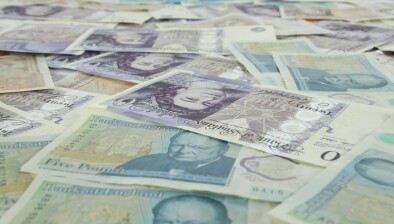Scottish hotel sector doing well despite Aberdeen downturn

Scotland’s hotel sector has done “very well” over the last five years despite being dragged down by the drop in occupancy and revenue in Aberdeen, according to the annual Hotel Britain report by accountants and business advisers BDO LLP.
The firm’s annual hotel survey found that five year growth levels in Scotland were behind the other parts of the UK recording a 0.4 per cent rise in compound annual growth rate (CAGR which is the average annual growth rate over a fixed period) between 2011-2015 and a 3.8 per cent rise in revenue over the same period.
This contrasts with a 1.5 per cent rise in occupancy in regional UK; up 1.7 per cent in England and 1.6 per cent higher in Wales. Revenue rose 4.9 per cent in regional UK between 2011-2015 with England increasing 5.1 per cent and Wales up 4.1 per cent.
However, the story is markedly different across Scotland’s cities with occupancy rising 0.3 per cent in Edinburgh between 2011-2015; up 1.4 per cent in Glasgow; rose 0.5 per cent in Inverness; but was down 2.3 per cent in Aberdeen. Revenue over the five year period increased by 5.9 per cent in Glasgow; was up 3.7 per cent in Inverness; 3.4 per cent in Edinburgh and 1.8 per cent in Aberdeen.
Alastair Rae, head of BDO’s Audit Practice in Scotland, said: “These figures indicate that the hotel sector in Scotland has had a good five years despite the underlying economic environment and that, Aberdeen aside, the rest of the country is doing very well.
“Although Aberdeen recorded an increase in average growth rate for revenue this is because for the four years from 2011-2014 the city was outperforming the rest of Scotland and most of the rest of the UK. The fall in 2015 has been so marked that it has managed to bring down the average growth to just 1.8 per cent and is likely to fall further in next year’s survey. It should also be noted that revenue over the last few years was very high in Aberdeen so it has a long way to go.”
Alastair added: “For the rest of Scotland these figures highlight how well the sector has performed with very strong revenue growth in Glasgow, Edinburgh and Inverness. Edinburgh has recorded the lowest annual growth rate but that is because it is from a very high base and its £64.12 figure for 2015 is the third highest in the UK outside London indicating how strong the market remains in the capital.
“Equally Glasgow and Inverness have much to celebrate with strong revenue increases over the five years to 2015. Glasgow has seen considerable growth in its events and conference activity while Inverness has really grown as a tourist destination.”
Alastair concluded: “These figures reveal a strong sector. However, over this period the number of passengers coming through Scottish airports increased by 15 per cent so there does appear to be a discrepancy in the growth of travellers compared with occupancy. This may be due to any number of factors such as travellers staying with relatives but could also be accounted for by the enormous growth in websites such as airbnb which lists over 1,000 properties available in Edinburgh alone. The growth of this market may well act as a limit on hotel expansion in the coming years but it is too early to know whether this relatively unregulated part of the market will have a serious impact upon the established hospitality sector. The next few years will be key in knowing what effect these changes will have on the hotel market in Scotland.”
This hotel trends survey has been published since the early 1970s and features a broad range of hotels in the 3 – 4 star categories.







